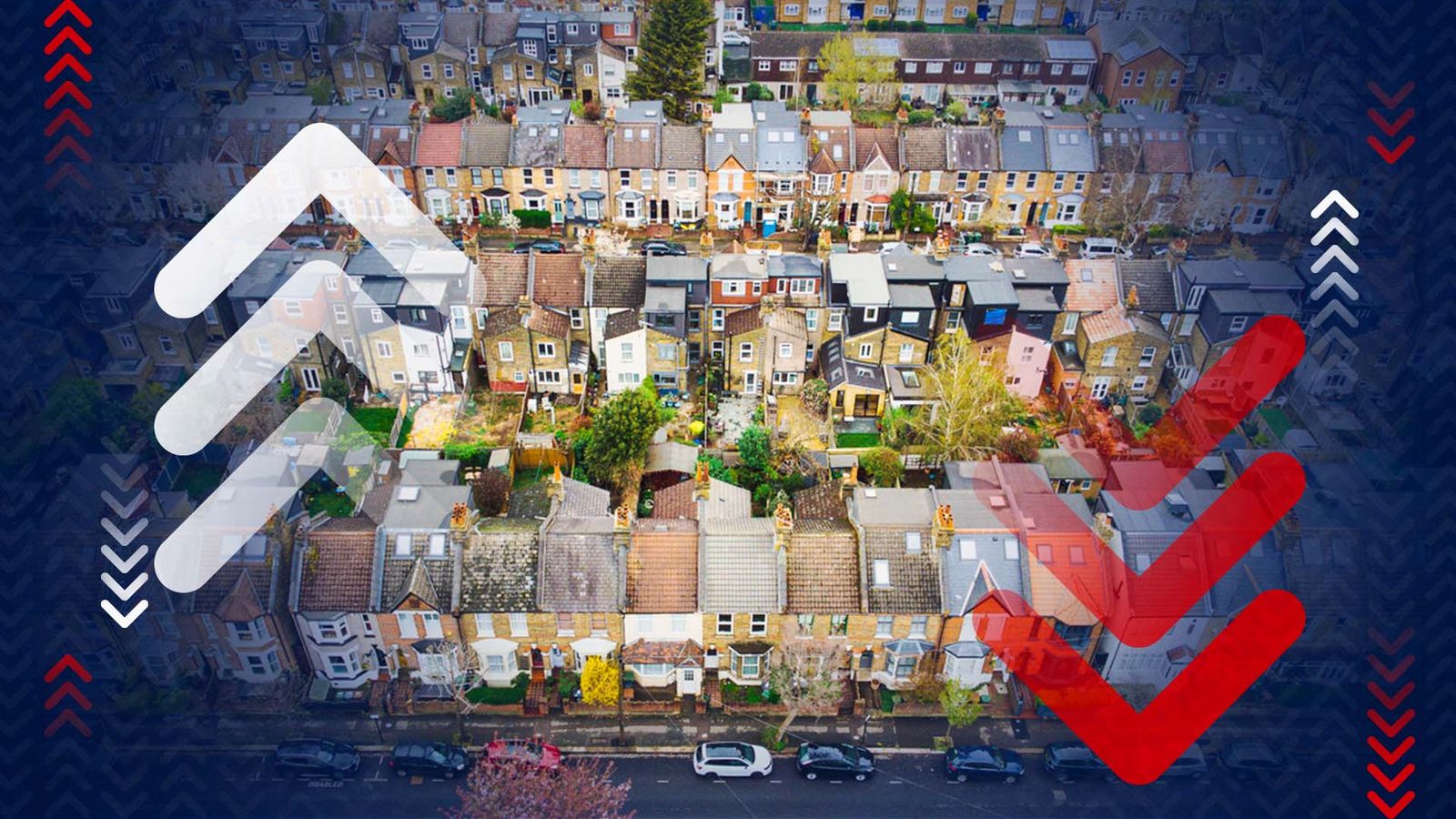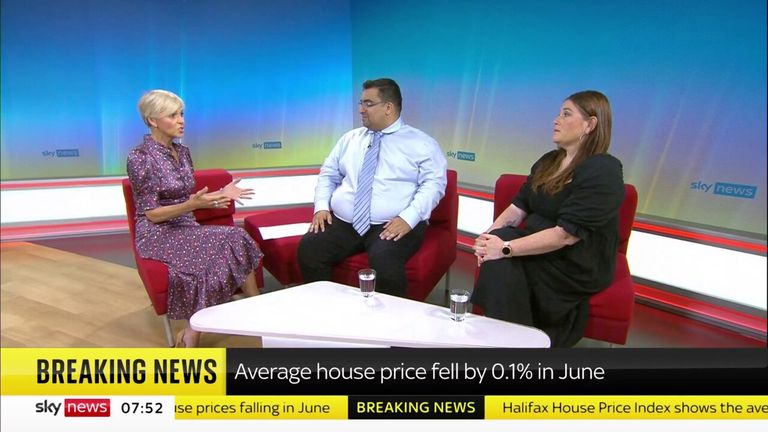Falling house prices and record wage growth has meant houses have become more affordable on paper, but the rising cost of borrowing has cancelled out any benefit.
The cost of a typical UK home is 6.7 times average earnings, down from a peak of 7.3 last summer, according to analysis from the country’s biggest mortgage lender, Halifax.
It means house prices are more within reach, but when the cost of borrowing money to buy a property is factored in, paying for a home has become more expensive.
Mortgage costs have gone up 22% in a year from an average of £1,020 to £1,249, data from the Halifax house price index shows, and account for a larger proportion of income.
A single mortgage holder is now paying more than a third (35%) of their average full-time salary on repaying their home loan, up from 30% a year ago, on a typical 25-year mortgage with a fixed interest rate for the first five years and a 25% deposit.
The figures are based on mean average earnings of £43,090 from April to June this year and a typical house price of £286,276.
However this is slightly misleading as it only takes into account people working full time and is skewed by small numbers of very high earners.
The median average salary is usually preferred because it “measures the amount earned by the typical individual”. That stands at around £29,000, just a tenth of the typical house price.
Mortgage payers are now in the minority, according to analysis from Sky News, while renters are the majority, followed by people who own their home outright.
While house prices have come down, they have consistently risen for years driven by buyer demand increasing during the pandemic, incentives such as the stamp duty holiday being rolled out, and interest rates at record lows.
Compared with the start of 2020, for the same mortgage (a typical 25-year mortgage, with a fixed interest rate for the first five years and a 25% deposit), the monthly cost has increased by 65%, now making up 23% of average earnings. In the pandemic year, the price of the average UK home was 6.2 times typical earnings.
Regional variance in affordability exists with Inverclyde in Scotland said to be the most affordable place in the country and Surrey Heath seeing the largest improvement in affordability over the last year.
Click to subscribe to the Sky News Daily wherever you get your podcasts
The most expensive place to buy a home, according to the data, was London, despite the region recording a 2.6% decrease in house prices over the last 12 months.
Average property prices are £533,057 in the capital and, based on average London earnings, the house price-to-income ratio is 9.3, the highest of any region.
Typical mortgage costs there account for nearly half (49%) of earnings, the biggest proportion of anywhere in the UK.
Most affordable is the northeast of England, with an average house price of £168,240 and a house price-to-income ratio of 4.9.

